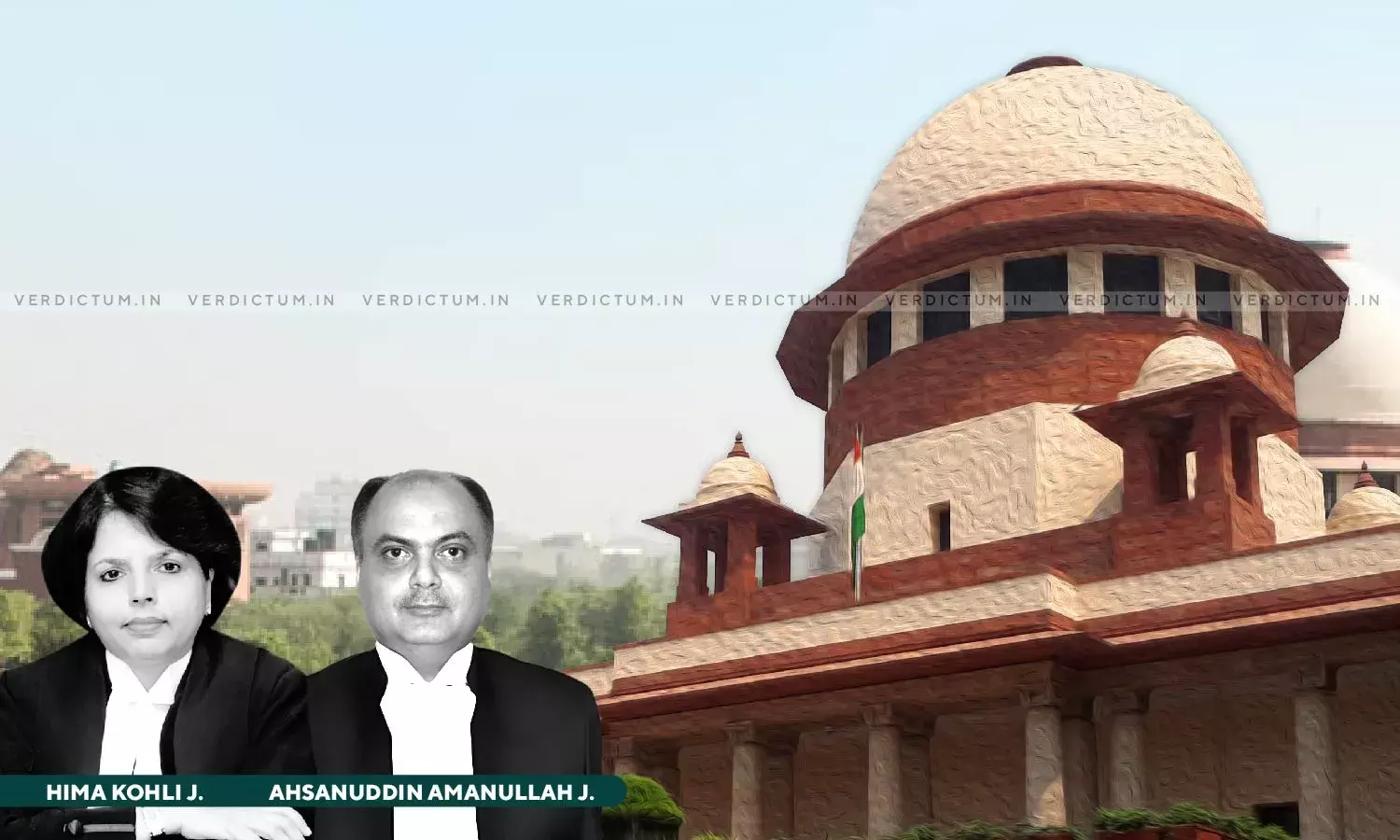Facts Pleaded Require Evidence To Substantiate; Mere Statements Or Bald Averments Takes A Case Nowhere: SC
The Supreme Court has observed that fact pleaded requires either oral or documentary evidence to substantiate the same since bald averments or mere statements by parties will cake a “case nowhere.”
The Court set aside the impugned order of the Division Bench of the Madras High Court while explaining that an agreement to mortgage by depositing title deeds does not require registration as the said agreement does not create any rights and liabilities.
A Bench of Justice Hima Kohli and Justice Ahsanuddin Amanullah observed, “For every fact which is pleaded, there has to be evidence, either oral or documentary, to substantiate the same. A bald averment or mere statement by a defendant bereft of evidentiary material to back up such averment/statement takes such defendant’s case nowhere.”
Advocate Narendra Kumar represented the appellant, while Sr. Advocate V. Prabhakar appeared for the respondent.
The respondent sought a business loan from the appellant. The loan was secured by two registered mortgages and four promissory notes. However, due to default in payment, the appellant demanded repayment of the amount due under the four promissory notes.
The respondent produced a title document of his property as security towards debt under the four promissory notes, noted in the Agreement. This Agreement was the root of the lis.
The Single Judge held that the respondent had agreed to “create equitable mortgage by depositing the title deeds”. However, the Division Bench vide the First Impugned Order held that the appellant had failed to prove that the respondent executed a mortgage.
The Supreme Court held, “We are of the opinion that the Single Judge has appreciated the law correctly as far as the Agreement is concerned to hold it to be a mortgage in view of Section 58(f) of the Act.”
Section 58(f) of the Transfer of Property Act stipulates that it’s necessary to deposit documents showing complete title or good title and whether all the documents of title to the property were required to be deposited.
The Bench relied on its decision in State of Haryana v Narvir Singh (2014) wherein it was held that a document merely recording a transaction which is already concluded and which does not create any rights and liabilities does not require registration.
In light of the same, the Court held that an agreement only records what has happened and does not create/extinguish rights/liabilities.
Consequently, the Court held, “Quite evidently, the Division Bench did not account for Section 58(f) of the Act. Indubitably, the respondent pleaded threat and coercion whilst executing/signing the Agreement, yet having accepted that he did sign the same in his own hand, the burden was on him to prove such threat/coercion. Looked at from any angle, the First Impugned Order suffers from legal errors, and cannot withstand the scrutiny of law.”
Accordingly, the Supreme Court allowed the appeal and imposed costs of Rupees One Lakh Twenty Thousand on the appellant.
Cause Title: A.B. Govardhan v. P. Ragothaman (Neutral Citation: 2024 INSC 640)
Appearance:
Appellant: Advocates Narendra Kumar, V. Balaji, MSM Asai Thambi and Dhananjay; AOR Rakesh K. Sharma
Respondent: Sr. Advocates V. Prabhakar; AOR S. Rajappa












